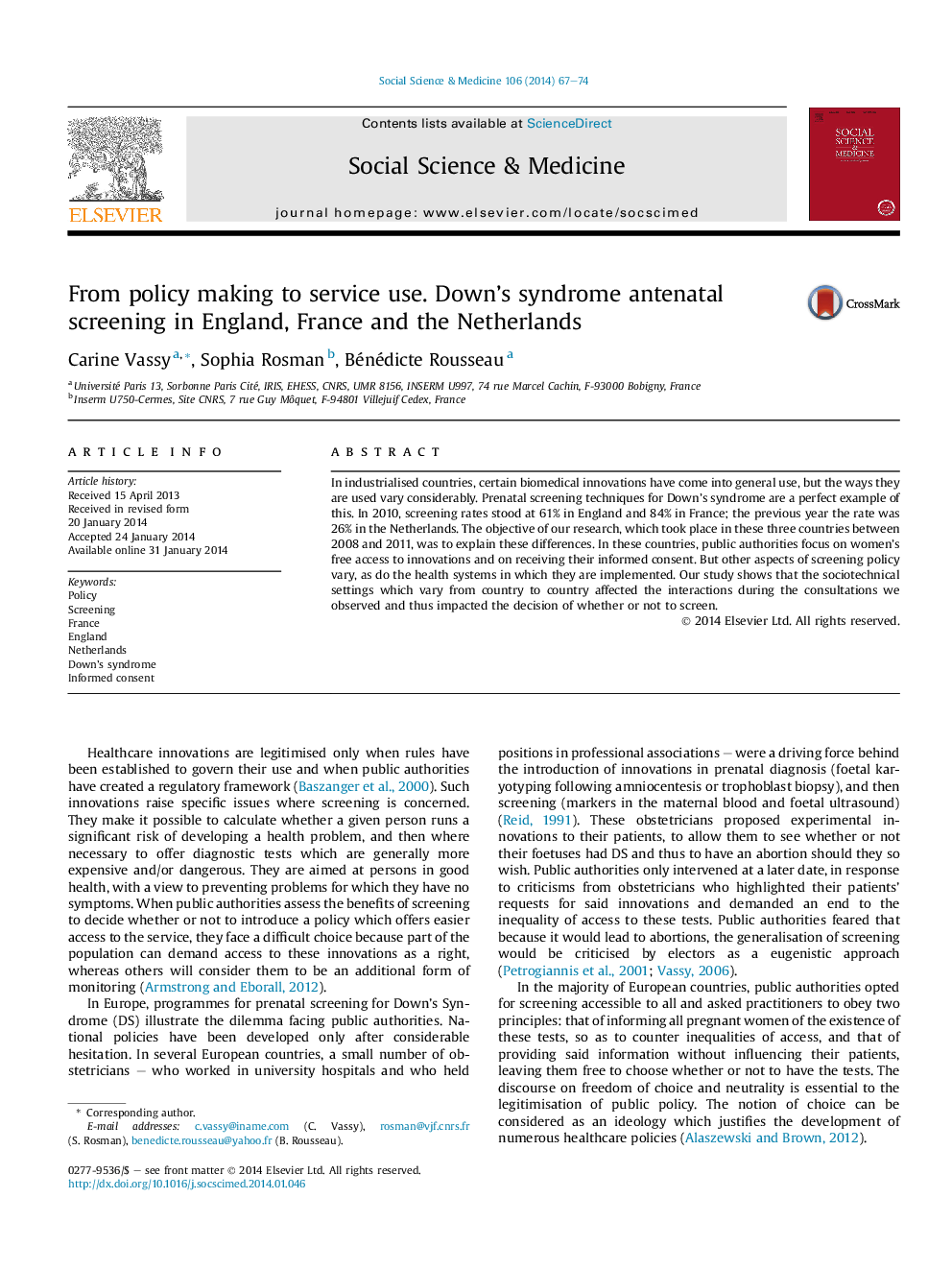| Article ID | Journal | Published Year | Pages | File Type |
|---|---|---|---|---|
| 7335488 | Social Science & Medicine | 2014 | 8 Pages |
Abstract
In industrialised countries, certain biomedical innovations have come into general use, but the ways they are used vary considerably. Prenatal screening techniques for Down's syndrome are a perfect example of this. In 2010, screening rates stood at 61% in England and 84% in France; the previous year the rate was 26% in the Netherlands. The objective of our research, which took place in these three countries between 2008 and 2011, was to explain these differences. In these countries, public authorities focus on women's free access to innovations and on receiving their informed consent. But other aspects of screening policy vary, as do the health systems in which they are implemented. Our study shows that the sociotechnical settings which vary from country to country affected the interactions during the consultations we observed and thus impacted the decision of whether or not to screen.
Related Topics
Health Sciences
Medicine and Dentistry
Public Health and Health Policy
Authors
Carine Vassy, Sophia Rosman, Bénédicte Rousseau,
